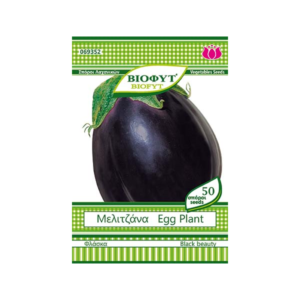Eggplant Long Sweet
Eggplant Long Sweet
Eggplant cultivation grows best in areas with a warm climate. It is worth mentioning that the eggplant needs more heat than the tomato crop and the pepper crop, as well as being much more sensitive to low temperatures and frost. Eggplant planting takes place from April onwards, when the temperature has risen noticeably. Eggplant grows in loose, fertile soils that have good drainage to remove excess water. When preparing the soil for cultivation and before planting the eggplant, we plow the garden and incorporate enough organic matter into the planting pits in the form of compost and digested manure, as well as complete organic fertilizer. Eggplant cultivation has several nutrient needs in order to thrive and it necessarily needs fertilization. To enjoy sweet eggplants, we add every 3-4 weeks a complete organic fertilizer fortified with potassium that helps to produce quality and tasty fruits so that they do not become bitter.
Eggplant cultivation has significant water needs and requires regular watering in order to be efficient and to give us quality fruits in large quantities. We water the eggplants twice a week in the spring season and every 2 days in the hot summer season. As is generally true for watering vegetables, a suitable watering system for our eggplants is the system of drip pipes. It offers more efficient and economical watering while limiting the growth of unwanted weeds during cultivation. We must be aware that during the flowering period of eggplant, lack of water can cause the flowers to drop and production to decrease. At the fruiting stage, eggplant cultivation needs constant watering, especially in the hot summer months, to avoid the formation of bitter-tasting fruits.









